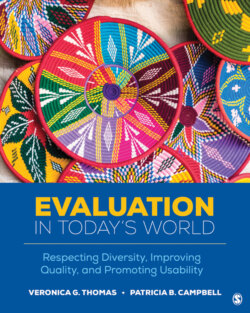Читать книгу Evaluation in Today’s World - Veronica G. Thomas - Страница 84
На сайте Литреса книга снята с продажи.
Questions for Discussion
ОглавлениеWhich potential ethical dilemmas exist for the evaluator in the two situations described?
Should the evaluator do anything? If so, what, and why?
Both of these scenarios require the evaluator to weigh the principles of the common good against promises of confidentiality made to the interviewees. Given the possible hidden agendas and complexities embedded in these cases, the evaluator should examine the situations from multiple perspectives, reflecting on whether the situations represent an ethical, legal, or professional problem or a combination of the three. Unless evaluators are forced to take an immediate course of action, they should pause to seek out different points of view and review and troubleshoot options with a more experienced, knowledgeable, and culturally competent colleague for this particular setting while remaining open-minded and reflective. Evaluators who are not culturally competent and who do not know and respect the unique cultural values operating in the evaluation context might inadvertently use culturally insensitive and incongruent methods that damage, instead of support, the community under study. This raises ethical issues related to the value of doing no harm.
Reviewing case studies, such as those found in Evaluation Ethics for Best Practice: Cases and Commentaries (Morris, 2008), is a useful way to help evaluators think about, analyze, and organize their thinking about real-life ethical dilemmas that they may face when conducting evaluations. Reflecting on evaluation cases, and discussing them with others, can better prepare evaluators for effective evaluation practice by developing the understanding, skills, and confidence necessary to confront ethical dilemmas in a thoughtful and coherent manner.
